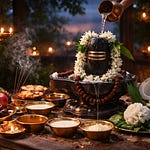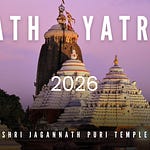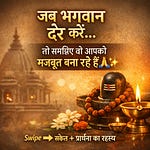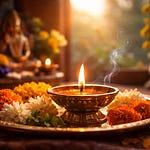Mandar Parvat, also known as Mandar Hill, is a sacred granite hill located in Bounsi (बौंसी), Banka district, Bihar, approximately 50 kilometers from Bhagalpur. This hill, rising about 800 feet, holds an extraordinary place in Hindu mythology, particularly due to its direct connection with the Samudra Manthan (churning of the cosmic ocean).
Mandar Parvat is a timeless tirtha (pilgrimage site) where mythology, faith, and natural beauty converge to offer a divine experience to seekers, pilgrims, and spiritual travelers.
📜 Origin & Historical Significance
🔱 Samudra Manthan: The Cosmic Churning
According to Vishnu Purana, Bhagavata Purana, and Mahabharata, the Devas (gods) and Asuras (demons) collaborated to churn the Kshira Sagar (Ocean of Milk) to obtain Amrit (nectar of immortality). For this grand cosmic task, they used:
Mandarachal Parvat (Mandar Hill) as the churning rod
Vasuki Nag (the serpent) as the churning rope
Lord Vishnu in his Kurma Avatar (tortoise form) served as the base, stabilizing the mountain on his back in the ocean.
🐢 Kurma Avatar Connection
It is believed that the impressions and markings of the Kurma Avatar’s shell and churning rope are still visible on the rocks of Mandar Hill, making it a living relic of this cosmic event.
🛕 Temples & Religious Sites
🕉️ Vishnu Temple (Madhusudan Mandir)
At the summit of Mandar Hill lies a temple dedicated to Lord Vishnu, worshiped as Madhusudan, signifying the slayer of the demon Madhu. Devotees climb the hill to seek blessings and perform rituals.
🕉️ Shiva Temple (Digambar Mandir)
At the foothill lies the Digambar Temple, devoted to Lord Shiva. It is said that Shiva consumed Halahala poison during the churning and thus devotees offer milk and water to cool the divine being.
💧 Papharni Kund (Sin-cleansing Lake)
A sacred pond at the base of the hill called Papharni Talab (or Papaharini Talab) is believed to absolve sins when devotees take a dip, especially during auspicious festivals.
🧘♂️ Jain Significance
Mandar Hill is also revered by Jain devotees as the site where 12th Tirthankara, Lord Vasupujya, attained nirvana and moksha. Jain temples are present on the hill, and ancient Jain inscriptions have been found here.
🌅 Rituals, Pujas & Devotion
Devotees perform the following rituals:
Snan (Holy Dip) in Papharni Talab
Parikrama (circumambulation) of the hill
Abhishekam & Archana to Shiva and Vishnu
Havan, Bhajan, and Aarti during major festivals
Jain pilgrims perform Samayik and Poojan on mountaintop shrines
Offerings include:
Milk, water, Bilva leaves (for Shiva)
Tulsi leaves, Chandan (for Vishnu)
Sweetened rice and fruits (for Jain traditions)
🌟 Spiritual Significance
Mandar Parvat is not just a religious site; it's a spiritual energy center. Pilgrims and sadhaks believe:
The hill radiates cosmic vibrations of balance and immortality
Bathing in Papaharni Kund absolves lifetimes of karmic sins
Climbing the hill barefoot represents the soul’s ascension toward Moksha (liberation)
Meditation on the summit enhances inner clarity and divine connection
🎉 Major Festivals
🪔 Makar Sankranti Mela (January)
The biggest annual fair at Mandar Parvat
Devotees gather for ritual bath, kirtans, and night-long prayers
Cultural stalls, local handicrafts, and food add to the festive environment
🌕 Guru Purnima & Kartik Purnima
Held at Papaharni Kund with rituals for ancestors
Special Satyanarayan Katha and Deepdan
🧘♂️ Jain Celebrations
Jain devotees observe Nirvana Mahotsav of Vasupujya
Monks and nuns visit for spiritual discourses
🧭 Travel & How to Visit
Nearest City: Bhagalpur (50 km away)
Nearest Airport: Deoghar Airport (~75 km) or Patna (300+ km)
Railway Station: Bounsi Station (connected to Bhagalpur)
Road Access: Connected via NH-80; taxis and autos available
Trekking: Stone steps available to reach the summit (~800 feet climb)
Stay: Dharamshalas and guest houses available in Bounsi and Banka
🛍️ What Else to Explore Nearby?
Bounsi village life & local fairs
Jain caves and sculptures near the base
Amrit Kund and Vishnu Pad markings
Tribal culture and folk performances during festivals
🧘 Devotee Focus
Thousands of Sanatan Dharma followers, Jain Tirthankars’ devotees, and spiritual seekers visit Mandar Parvat every year. For many, it is:
A Tirtha Kshetra for liberation
A healing site for the soul and body
A place of mythological meditation
An ancient center of cosmic balance
Mandar Parvat is not merely a hill — it is a spiritual epicenter of Indian mythology, blending the Vedic, Puranic, and Jain traditions into one sacred geography. From the cosmic churn of Amrit to the moksha of a Tirthankara, every stone here tells a divine story.
Visiting Mandar Parvat is not just a journey of feet, but of faith.
🛕✨
"जय श्री राम | जय विष्णु | जय शिव शंभू | जय तीर्थंकर"










